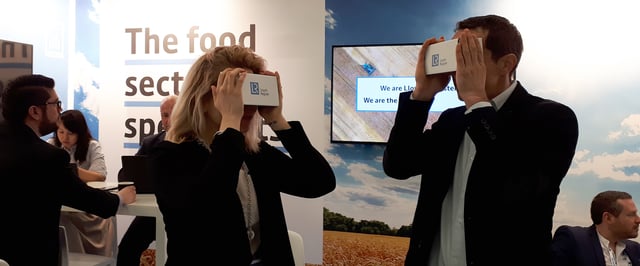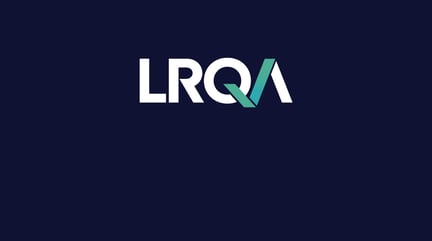LRQA’s (LRQA) virtual reality food safety simulation at the Global Food Safety Conference in Nice is given the thumbs up by attendees.
Feedback from impressed visitors who had the opportunity to test their knowledge of food safety risks with LRQA's virtual reality test demonstration has persuaded the company to develop the technology further.
Stuart Kelly, LRQA's Head of Commercial said: “We were blown away by how well the technology was received. Although it’s still in test phase, we’ve already had several requests for VR to be included as part of our 45001 training courses and even enquiries around customised content for global clients. It’s really shown us how keen people are to embrace this kind of learning.
"In line with our overall mission to make the world a safer place, VR is an excellent way for trainees to have hands on experience and practice of complex and potentially hazardous tasks, in a secure, safe and controlled environment, something which our clients can relate to.”
During the VR simulation, which takes place in a milk bottling factory, users must identify hazards as detailed in Occupational Health & Safety Standard ISO 45001 to pass.
LRQA's Innovation Manager, Frank van Bockel said: “VR can create a different kind of learning and can allow the user to immerse themselves in a potentially hazardous environment without compromising on safety. It gives the experience without the element of danger.
“Based on the success of the demo at GFSC, we are now developing VR technology further so we can incorporate it into our training packages. In time, not only will this be great for the classroom environment, it will also be useful to businesses as on-site refresher training, using a mobile and cardboard VR set which will be extremely cost efficient for companies.”
Victor Chavez, LRQA's Global Product Development Manager, Training and Improvement Services, added: “The true power of VR is that you can cheat the brain to make it think it’s in a real environment. With proper instructional design, you can create complex scenarios where delegates can move round safely, looking for issues, evidence and hints and then discussing with their trainer to close the learning cycle. The learning process comes from the analysis and reflection, not from the identification.”
VR is just one technology being developed by LRQA's technology and innovation team. Additive manufacturing, artificial intelligence, augmented reality and blockchain are some of the others currently being tested.
To find out more please contact us: enquiries@lr.org.
Visitors on LRQA stand at GFSC 2019



